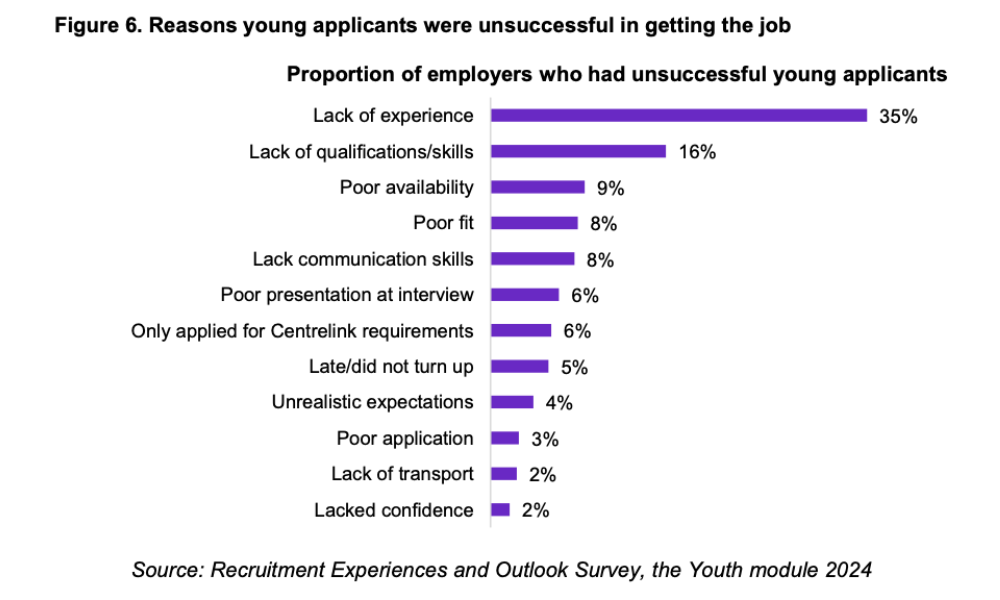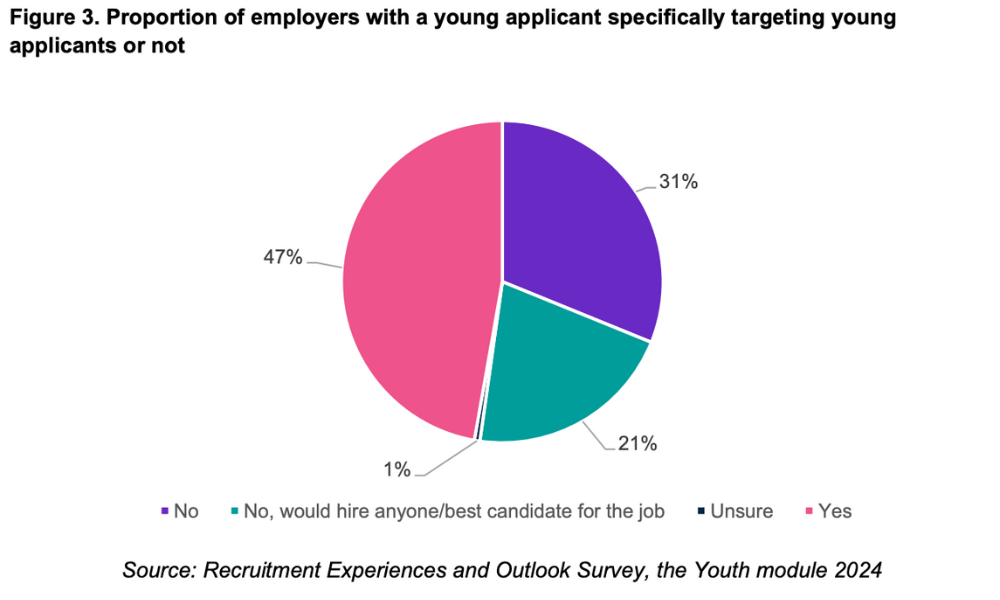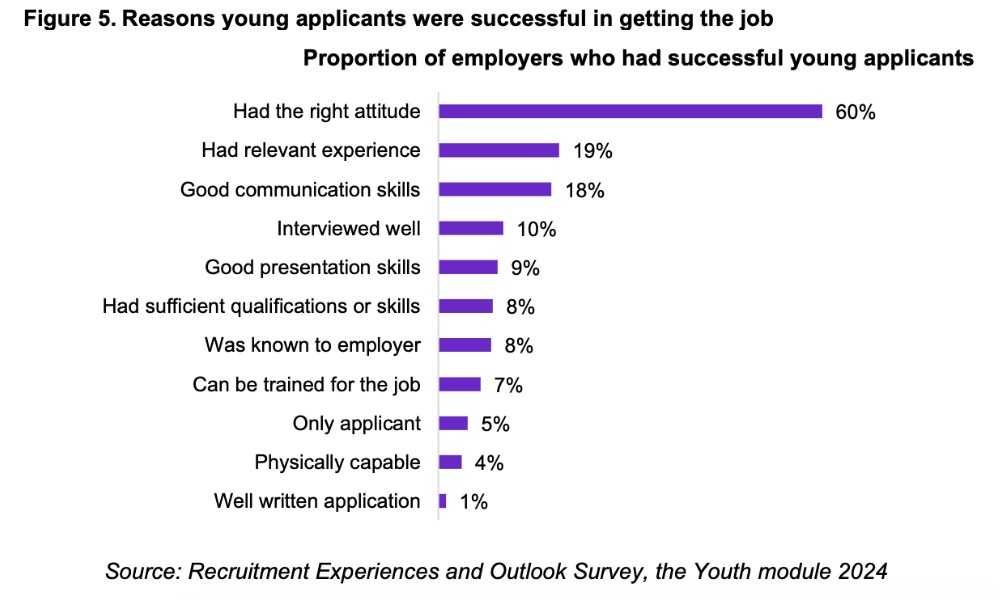
New report reveals why young jobseekers are unsuccessful in job applications

The lack of experience among young jobseekers is holding Australian employers back from hiring them, according to new government data, which aimed to look at the issue of youth unemployment.
Jobs and Skills Australia released last week new data unveiling employers' experiences with young job applicants.
According to the report, 35% of employers cite lack of experience as the top reason why young applicants are unsuccessful in landing a job.
Another 16% said it was because of lack of qualifications or skills, and nine per cent said it was because of their poor availability.
"This could be supported by the fact that young people might take up more casual or part-time roles due to education commitment or being multiple job holders," the report noted. "These were notable challenges employers faced when recruiting young people."

The findings come in the wake of a high unemployment rate among young people in Australia.
The Australian Labour Force Survey revealed that the youth unemployment rate is at nine per cent as of January 2025, more than double the country's overall 4.1% unemployment rate.
The country's high youth unemployment rate is reflective of global data, as youth unemployment stands at 12.6% as of 2024, equivalent to almost 65 million people out of work, according to the International Labour Organisation.
The E61 Institute noted in 2023 that Australia's youth unemployment has always been consistently higher than the overall jobless rate due to various reasons.
According to the institute, younger employees have a higher separation and displacement rates than other age groups. Separation rate includes both voluntary and involuntary reasons for leaving work, while displacement rate refers to just involuntary reasons.
"A young person is 150% more likely to separate from their job, and 50% more likely to be displaced, than a prime-aged worker," the report read.
This can be attributed to a variety of reasons, such as young employees' education and tenure.
"Much of the risk of being made redundant stems from being new to the firm and having a low level of education. It is not necessarily employer discrimination due to age, but rather factors that are often related to age," the institute's report added.
To support young people in finding employment, the Australian government has introduced a range of policies over the years, such as:
Training and skills development
Job search assistance
Financial support and career counselling
Industry-specific and transferrable skill development programmes
Skill development pathways aimed at building employability skills
In Australia, there is strong interest among employers to hire young job applicants, according to the Job and Skills report.
Among employers who have hired young applicants in the past 12 months, 47% reported that they were specifically interested in hiring a young applicant to fill their position.

Six in 10 employers said they hired a young applicant because they had the right attitude. Others said because they had the relevant experience (19%) and good communication skills (18%).

"Generally, employers are looking for someone with the whole package: education, relevant experience, and employability skills," the report read.
"Having employability skills such as having the right attitude, good communication skills, and ability to work in a team will ensure that the young job seeker is job ready. These are the values that employers will not compromise on."